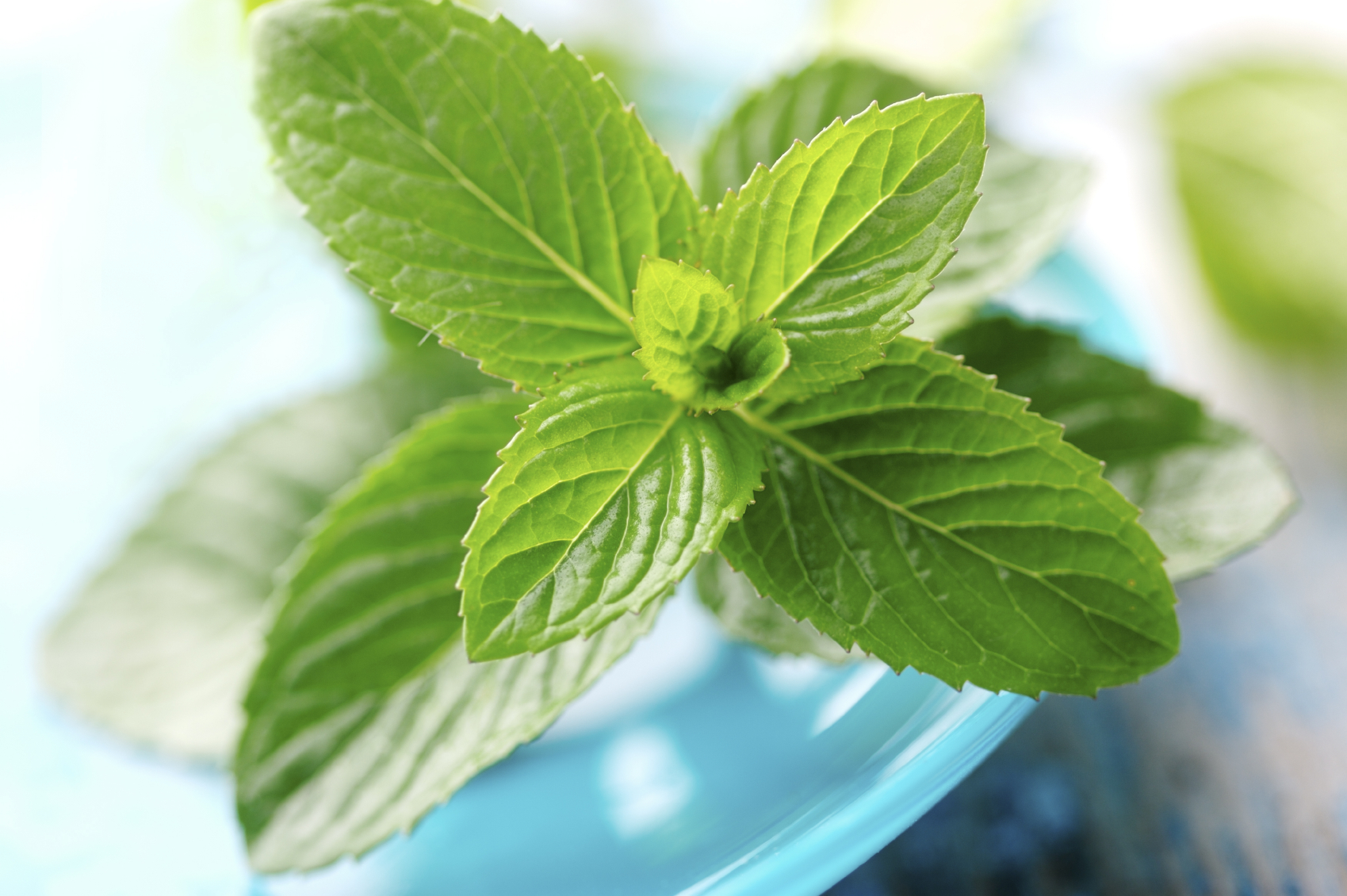When you think of mint, you probably don’t think about it as a natural medicine. Yet for centuries, healers have used this common plant to treat a number of conditions. And that’s because there are some major health benefits to using fresh mint. It’s a viable solution to a variety of unpleasant—sometimes even embarrassing—health conditions.
Here are five reasons to start using more mint:
1. Prevent Common Colds: Mint has one of the highest antioxidant counts of any food.1 And antioxidants help prevent oxidative damage and inflammation. They also provide your immune system with a boost that can help it fight off a cold or flu.2 But if you already have a cold, mint can help with that as well.
One of peppermint’s active ingredients is menthol. This natural decongestant helps thin mucous. It also helps break up your cough. Another benefit is that mint can help soothe the sore throat that comes with a dry cough.3 Drinking organic peppermint tea is a great way to help you get immediate relief when dealing with a nasty cold.
2. Ease Irritable Bowel Syndrome (IBS): IBS can be embarrassing… Even worse, it’s painful. Instead of turning to dangerous Big Pharma solutions—like SSRIs—to fix the problem, try natural peppermint oil. One study found that peppermint oil eliminated pain completely in IBS patients. Another study revealed that it reduced IBS symptoms by at least 50% after only one month in 75% of subjects.4 You can find natural peppermint oil in capsules for daily use at your local health food store or online.
3. Alleviate Allergies: Most mint plants are rich in rosmarinic acid (RA). This antioxidant with potent anti-inflammatory properties can help reduce seasonal allergy symptoms. Unlike OTC antihistamines, RA doesn’t just help stop the reaction, it also helps kill allergy-activated immune cells. And it does this without harming your other immune cells.5 Patients in one study saw a significant decrease in inflammatory cytokines in their nasal fluids after taking 200 mg of RA for 21 days.6
You can get RA from eating fresh mint varieties or brewing whole-leaf mint tea. You can also find it as a supplement in health stores and online.
4. Relieve Occasional Indigestion: Mint—especially peppermint—can also help you when you eat something you shouldn’t have. It helps improve the flow of stomach acids and bile. This may make digestion faster and easier.7 Peppermint may even help you feel less full and bloated. It can also ease heartburn and mild gastrointestinal spasms.8
Just make sure not to use this if you suffer from chronic acid reflux or GERD. Though mint can be cooling, it can quickly turn to a painful burning if you already have esophageal damage.
5. Soothe Skin: One of the worst parts of summer is dealing with mosquito bites. You can apply mint leaves or oil directly to your skin. This will help stop itching and ease irritation. Fresh mint can even work as a natural mosquito repellant.9 But it goes beyond bug bites. It may also help you clear up rashes and other skin reactions. If you’re the outdoorsy type, mint can help your skin get relief from poison ivy and poison oak.10
Whether you grow your own or keep some in your cupboard, mint is a great herb to have on hand. It’s a refreshing natural solution to some unpleasant and annoying health issues. And these are just a few of them… Our publisher finds that rubbing peppermint oil on her temples works wonders for a headache. What other uses have you found for mint?
Like this Article? Forward this article here or Share on Facebook.
References:
1http://www.medicalnewstoday.com/articles/275944.php
2http://magazine.foxnews.com/food-wellness/superfoods-fight-colds
3https://umm.edu/health/medical/altmed/herb/peppermint
4http://www.ncbi.nlm.nih.gov/pubmed/17420159
5http://www.lef.org/magazine/mag2004/nov2004_report_allergy_01.htm
6http://www.ncbi.nlm.nih.gov/pubmed/15630183
7Idem
8http://www.nlm.nih.gov/medlineplus/druginfo/natural/705.html
9http://www.ahamodernliving.com/blog/garden/five-plants-that-keep-mosquitoes-from-buzzing-in-your-ears/
10Id.

